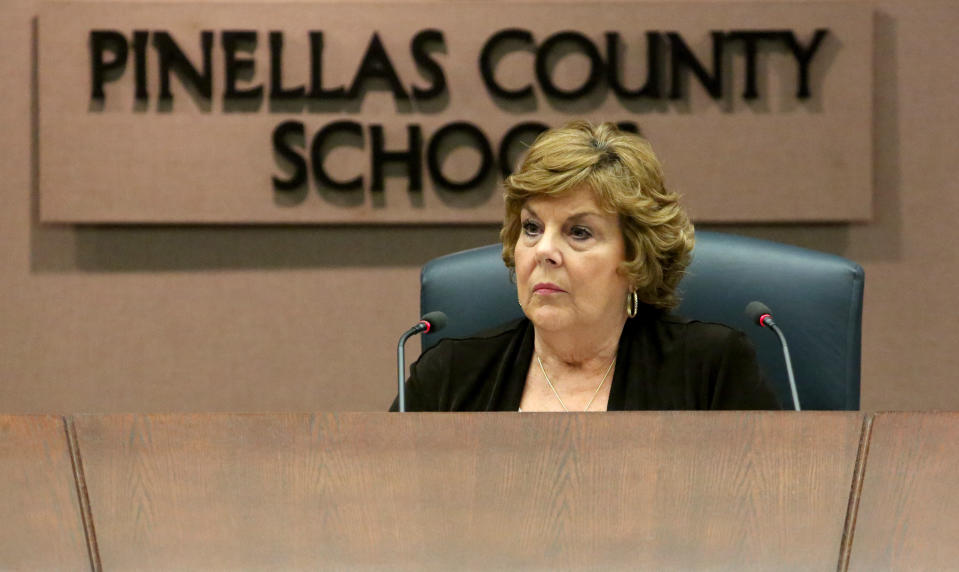After criticism, Pinellas School Board may rethink public comment rule

For months during the pandemic, Pinellas County residents filled School Board chambers to argue about topics such as critical race theory and masking.
Anyone who tuned in to the board’s YouTube page could hear the commentary, which often lasted for hours and just as often was not part of the agenda.
Citing concerns that parents might inadvertently reveal children’s personal information on the internet, the board last fall turned off the cameras for the public participation portion of its meetings.
“Public comment wasn’t removed,” said chairperson Lisa Cane, who supported the move. “We stopped livestreaming it.”
Many people didn’t see it that way. Critics emerged from all points on the political spectrum, accusing the board of attempting to silence dissenting voices.
Now the board might revisit its decision amid the many calls for more transparency.
Cane said she expected the issue to come up for reconsideration, along with discussion of whether the board should air its workshop sessions, too. Except for during the pandemic, the district has not streamed its workshops, where board members and administrators do most of the heavy lifting on critical issues.
The public can request a voice recording of those sessions after they have ended.
New board members Stephanie Meyer and Dawn Peters advocated for changes during their recent campaigns.
“The public’s right to address their elected officials and share their grievances is a fundamental principle of our democratic republic,” Meyer said Wednesday. “If we’re going to livestream government meetings, public comments should also be included in the livestream.”
Board member Eileen Long said the workshops should be livestreamed too. The audio at least should be aired, she said, noting it could be problematic to get video equipment in the smaller conference room where the board holds its work sessions.
“I will definitely vote for workshops to be live verbal,” Long said. “It’s all public knowledge. It’s supposed to be.”
Board member Laura Hine, who joined board member Caprice Edmond in opposing the changes last year, said she did not intend to bring the issue up for review. But if it arises, Hine said, she wants to hear the pros and cons before offering her own opinion.
She acknowledged the concerns that parents might not be thinking about putting personal private information onto the internet when they speak to the board. She also wanted to know what other boards do.
The Pasco County School Board does not stream workshops or public comment on non-agenda items. The Hillsborough County board does both.
“I know that when they were streaming the workshops I would actually listen to them, before I was on the board,” Hine said. “I thought it was really helpful.... I’m open to it.”
Board member Carol Cook, who pushed for the limits on streaming, said she remained comfortable with the current model. At the same time, she added, “if somebody has a better reason why we need to change, tell me what the change will be and I’ll tell you whether it’s something I can support.”
Cook and Long said they wanted to have a way to ensure that people don’t take advantage of the public airwaves to espouse false information or to attack people who are not present to defend themselves. If the board can have honest, open conversations, Cook added, there’s no reason to fear the discussions being aired.
“Eventually it’s public record anyway,” she said, suggesting that having the full conversations easily accessible might answer many critics’ questions and clear up concerns.
Cook said she would not be the one to bring the idea to the table for discussion. But she anticipated it will happen in short order, since it was a point of contention during the election season.
• • •
Sign up for the Gradebook newsletter!
Every Thursday, get the latest updates on what’s happening in Tampa Bay area schools from Times education reporter Jeffrey S. Solochek. Click here to sign up.

